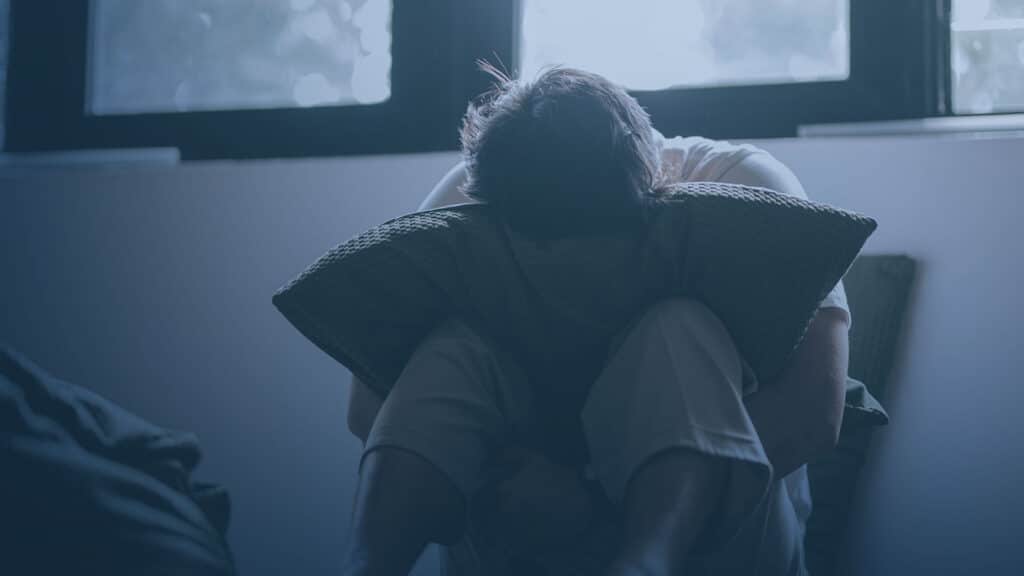Bipolar Disorder Lawyers for Veterans

Bipolar disorder is a serious mental health condition that affects many Veterans, often making it difficult to maintain steady employment, relationships, and daily responsibilities. Characterized by extreme mood swings that alternate between depressive episodes and manic or hypomanic episodes, bipolar disorder can significantly impact a Veteran’s ability to function. While some Veterans experience symptoms while still in service, others may develop bipolar disorder after discharge, struggling to adjust to civilian life.
The Department of Veterans Affairs (VA) recognizes bipolar disorder as a service-connected disability, making Veterans eligible for compensation if they can prove their condition is linked to their military service. However, securing VA benefits for bipolar disorder can be challenging. Many Veterans face denials due to a lack of medical evidence, an inability to prove service connection, or incorrect disability ratings that do not accurately reflect the severity of their condition.
At Veterans Law Group, we help Veterans fight for the benefits they deserve. If your VA claim for bipolar disorder has been denied, delayed, or rated too low, we can guide you through the appeals process and advocate for the compensation you need. Our legal team has decades of experience handling VA disability claims and understands the unique challenges Veterans with bipolar disorder face when trying to prove their cases.
Understanding Bipolar Disorder in Veterans
Bipolar disorder is a mental health condition that causes extreme shifts in mood, energy, and activity levels. Veterans with bipolar disorder often experience periods of deep depression, followed by manic or hypomanic episodes that can lead to impulsive behavior, excessive energy, and difficulty thinking clearly. These episodes can make it challenging to maintain stability in both personal and professional life.
The symptoms of bipolar disorder can range from mild to severe, with some Veterans experiencing relatively stable periods between episodes, while others struggle with frequent and unpredictable mood swings. There are two primary types of bipolar disorder that affect Veterans:
Bipolar I Disorder
Bipolar I disorder is characterized by severe manic episodes that last at least a week or require hospitalization. During these episodes, Veterans may experience increased energy, racing thoughts, decreased need for sleep, impulsive decision-making, and, in some cases, delusions or hallucinations. The manic phase is usually followed by a depressive episode, which can last for weeks or months and cause intense feelings of sadness, hopelessness, fatigue, and difficulty concentrating.
Bipolar II Disorder
Bipolar II disorder involves a pattern of depressive episodes and hypomanic episodes, which are less severe than full mania. Veterans with bipolar II disorder may not experience psychotic symptoms, but they still struggle with unstable moods that interfere with daily life. Hypomanic episodes can cause heightened energy, decreased need for sleep, and increased impulsivity, but they do not typically require hospitalization. The depressive episodes in bipolar II disorder are often just as severe as those in bipolar I disorder.
How Bipolar Disorder Affects Veterans' Daily Lives
Bipolar disorder can have a devastating impact on a Veteran’s ability to function in everyday life. Many Veterans with bipolar disorder struggle to maintain employment, engage in social relationships, and take care of their personal responsibilities. The extreme mood swings associated with bipolar disorder make it difficult to stay consistent with work, manage finances, and maintain emotional stability.
One of the biggest challenges for Veterans with bipolar disorder is maintaining steady employment. During manic or hypomanic episodes, Veterans may take on too many responsibilities, make impulsive decisions, or engage in risky behavior. During depressive episodes, they may struggle to get out of bed, complete tasks, or focus on work. These mood swings can make it difficult to hold a job, leading to financial instability and added stress.
Bipolar disorder also affects personal relationships. Veterans with the condition may experience irritability, mood swings, and emotional outbursts that strain their relationships with spouses, children, and friends. Some Veterans withdraw from loved ones during depressive episodes, isolating themselves from social interactions. Others may engage in reckless or impulsive behavior during manic episodes, leading to conflicts with family and friends.
In addition to the emotional challenges, bipolar disorder can cause physical health problems. Many Veterans with bipolar disorder struggle with sleep disturbances, weight fluctuations, and chronic fatigue. The stress of managing mood swings can also lead to increased blood pressure, heart problems, and other long-term health complications.
Common Misconceptions About Veterans With Bipolar Disorder
Many misconceptions surround bipolar disorder, leading to misunderstandings that can prevent Veterans from seeking help or receiving the benefits they deserve. These false beliefs often contribute to stigma, misdiagnosis, and difficulties navigating the VA disability claims process. Understanding the truth about bipolar disorder is essential for ensuring that Veterans receive the proper recognition, treatment, and compensation for their condition.
Bipolar Disorder Is Just Mood Swings
One of the most common misconceptions about bipolar disorder is that it is simply a condition of having frequent mood swings. In reality, bipolar disorder is a severe mental health condition characterized by distinct manic, hypomanic, and depressive episodes that can last for days, weeks, or even months. These episodes significantly impact a Veteran’s ability to function, work, and maintain relationships. It is not just a case of feeling happy one moment and sad the next — it involves extreme changes in energy, behavior, and decision-making that can have serious consequences.
Veterans With Bipolar Disorder Can Control Their Symptoms Without Treatment
Some people believe that Veterans with bipolar disorder should be able to manage their symptoms through willpower alone. However, bipolar disorder is a medical condition caused by chemical imbalances in the brain. While coping strategies and lifestyle adjustments can help, most Veterans with bipolar disorder require medical treatment, including mood stabilizers, antipsychotic medications, and therapy, to manage their symptoms effectively. Without treatment, episodes can become more severe and frequent, leading to worsening mental health and greater difficulty maintaining daily responsibilities.
Bipolar Disorder Only Affects Younger Veterans
There is a misconception that bipolar disorder only develops in young adults. While many cases are diagnosed in early adulthood, bipolar disorder can develop at any age, including during military service or years after discharge. Some Veterans may not experience symptoms until they are under extreme stress or facing major life changes, such as transitioning to civilian life. Others may have been misdiagnosed with depression, anxiety, or personality disorders while in service, delaying a proper diagnosis until much later.
Veterans With Bipolar Disorder Are Unfit to Work or Function in Society
Another harmful misconception is that all Veterans with bipolar disorder are completely incapable of working or contributing to society. While some Veterans experience severe symptoms that prevent them from maintaining steady employment, others can function well with proper treatment and accommodations. The severity of bipolar disorder varies from person to person, and with the right medical care and support, many Veterans are able to lead productive lives. However, those who are unable to work due to their condition should not be denied the disability benefits they need.
The VA Always Gives Fair Ratings for Bipolar Disorder
Many Veterans assume that because the VA recognizes bipolar disorder as a service-connected condition, they will automatically receive a fair disability rating. Unfortunately, this is not always the case. The VA often assigns ratings that do not fully reflect the impact of bipolar disorder on a Veteran’s daily life. Some Veterans receive lower ratings because they appeared stable during a Compensation & Pension (C&P) exam, even though they experience severe symptoms outside of the exam setting. Others may have their condition mischaracterized, leading to an unfair denial or underrating of their claim.
Veterans Should Avoid Filing a Claim Because of Stigma
Many Veterans hesitate to file a disability claim for bipolar disorder due to the stigma surrounding mental health conditions. Some worry that seeking benefits will make them appear weak or incapable, while others fear how it may affect future job prospects. However, bipolar disorder is a legitimate medical condition that deserves proper recognition and support. Veterans who experience significant struggles due to their condition should not hesitate to seek the benefits they have earned.
Why Veterans Struggle to Get Bipolar Disorder Benefits from the VA
Applying for VA disability benefits for bipolar disorder is not always straightforward. Many Veterans face significant obstacles that prevent them from receiving the compensation they need. Some of the most common challenges include:
Denial of Service Connection
One of the biggest hurdles Veterans face when applying for bipolar disorder benefits is proving service connection. The VA requires evidence that the condition either developed during military service or was aggravated by service. However, bipolar disorder is often misdiagnosed or undiagnosed until years after discharge, making it difficult to establish a direct link.
Many Veterans who experienced mood swings while in service may not have received a formal diagnosis at the time. In some cases, they may have been misdiagnosed with depression, anxiety, or a personality disorder. If bipolar disorder was not documented in service records, the VA may deny the claim, arguing that there is insufficient evidence to connect the condition to military service.
Veterans can strengthen their claims by providing statements from fellow service members, family members, or mental health professionals who can attest to mood instability that began during or shortly after service. Medical opinions linking bipolar disorder to service-related stressors or trauma can also help establish service connection.
Unfairly Low Disability Ratings
Even when the VA grants service connection for bipolar disorder, it may assign a disability rating that does not accurately reflect the severity of the condition. The VA rates mental health conditions, including bipolar disorder, based on how much they affect daily life. The possible ratings include 0%, 10%, 30%, 50%, 70%, and 100%, depending on the severity of symptoms and their impact on work, social relationships, and daily functioning.
Many Veterans receive a rating that is too low, preventing them from getting the full benefits they need. For example, a Veteran who experiences frequent manic and depressive episodes that make it impossible to hold a job may receive only a 50% rating, even though their symptoms prevent them from working.
If a Veteran’s bipolar disorder significantly impairs their ability to maintain employment or social relationships, they may be entitled to a higher rating. Veterans who receive an unfairly low rating should consider filing an appeal with additional medical evidence that demonstrates the full impact of their condition.
Misinterpretation of Medical Evidence
The VA relies on Compensation & Pension (C&P) exams to evaluate disability claims, but these exams are not always accurate. Some examiners may downplay symptoms, misdiagnose the condition, or fail to ask the right questions. Veterans who appear stable during a short evaluation may be assumed to have mild symptoms, even if they experience severe mood swings outside of the exam setting.
Additionally, the VA may overlook private medical records or dismiss medical opinions from outside providers. This can lead to wrongful denials or disability ratings that do not fully account for the severity of bipolar disorder. Veterans who believe their condition has been misrepresented in a C&P exam may need to submit additional evidence or challenge the exam’s findings.
How Bipolar Disorder Lawyers for Veterans Can Help
A lawyer who specializes in VA disability claims can help Veterans navigate the complex process of securing benefits for bipolar disorder. Many Veterans struggle to get the compensation they deserve because they do not know what evidence the VA requires or how to challenge an unfair decision. An experienced attorney can guide them through the process and advocate on their behalf.
For Veterans who are unable to work due to bipolar disorder, a lawyer can also assist with filing for Total Disability Individual Unemployability (TDIU). TDIU allows Veterans with lower disability ratings to receive benefits at the 100% compensation level if their condition prevents them from maintaining substantially gainful employment.
Veterans Law Group Can Help
At Veterans Law Group, we are dedicated to helping Veterans with bipolar disorder secure the disability benefits they deserve. The VA claims process can be overwhelming, but you do not have to go through it alone. Our legal team has spent decades representing Veterans and fighting back against wrongful denials and low disability ratings.
If your bipolar disorder claim has been denied, delayed, or rated too low, now is the time to take action. Every day without the benefits you need is another day of unnecessary stress and hardship. Contact Veterans Law Group today for a free case review. Let us help you fight for the compensation you have earned.
Related Services
Related Blogs
Not Sure If You Can Appeal? Ask Us Today.
What Other Veterans Have To Say About Us
★★★★★
The experience and resources at the Veterans Law Group provided the help I needed and because of this I am most grateful. Be patient, reach out and allow this team to work with you.
– Michael D., Philadelphia, PA
★★★★★
This was the best decision I have ever made. Thank you Kelsey and Mychell for your professionalism and attention to detail. I am so grateful for everything that you have done for me. Don’t waste time. Go straight to the best!!!
– Michele Safos
★★★★★
During my long fight with VA, Mark and his staff of excellent paralegals stayed the course, remained professional, yet aggressive during our battle with the VA Appeals system. Let’s just say, the end result was truly a blessing for me and my family’s future- THANK YOU VETERANS LAW GROUP!!!!
– Marieco Myart











